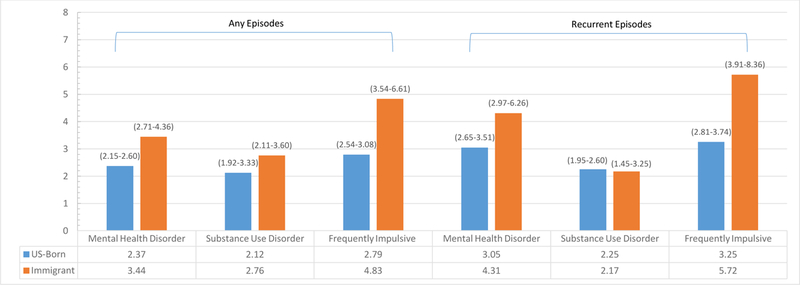Figure 2.

Adjusted odds ratios (AOR) for the association between and lifetime mental health disorder diagnosis and frequent impulsive behavior with overeating. AORs adjusted for age, gender, race/ethnicity, household income, education level, and marital status. Immigrant status significantly moderated the association between binge eating and [1] mental health diagnosis (Any: AOR = 1.55, 95% CI = 1.21–1.98; Recurrent Episodes: AOR = 1.52, 95% CI = 1.00–2.30), [2] substance use disorder (Any: AOR = 1.44, 95% CI = 1.10–1.88; Recurrent Episodes = not significant), and [3] frequent impulsive behavior (Any: AOR = 1.90, 95% CI = 1.37–2.64; Recurrent Episodes: AOR = 1.85, 95% CI = 1.21–2.82).
